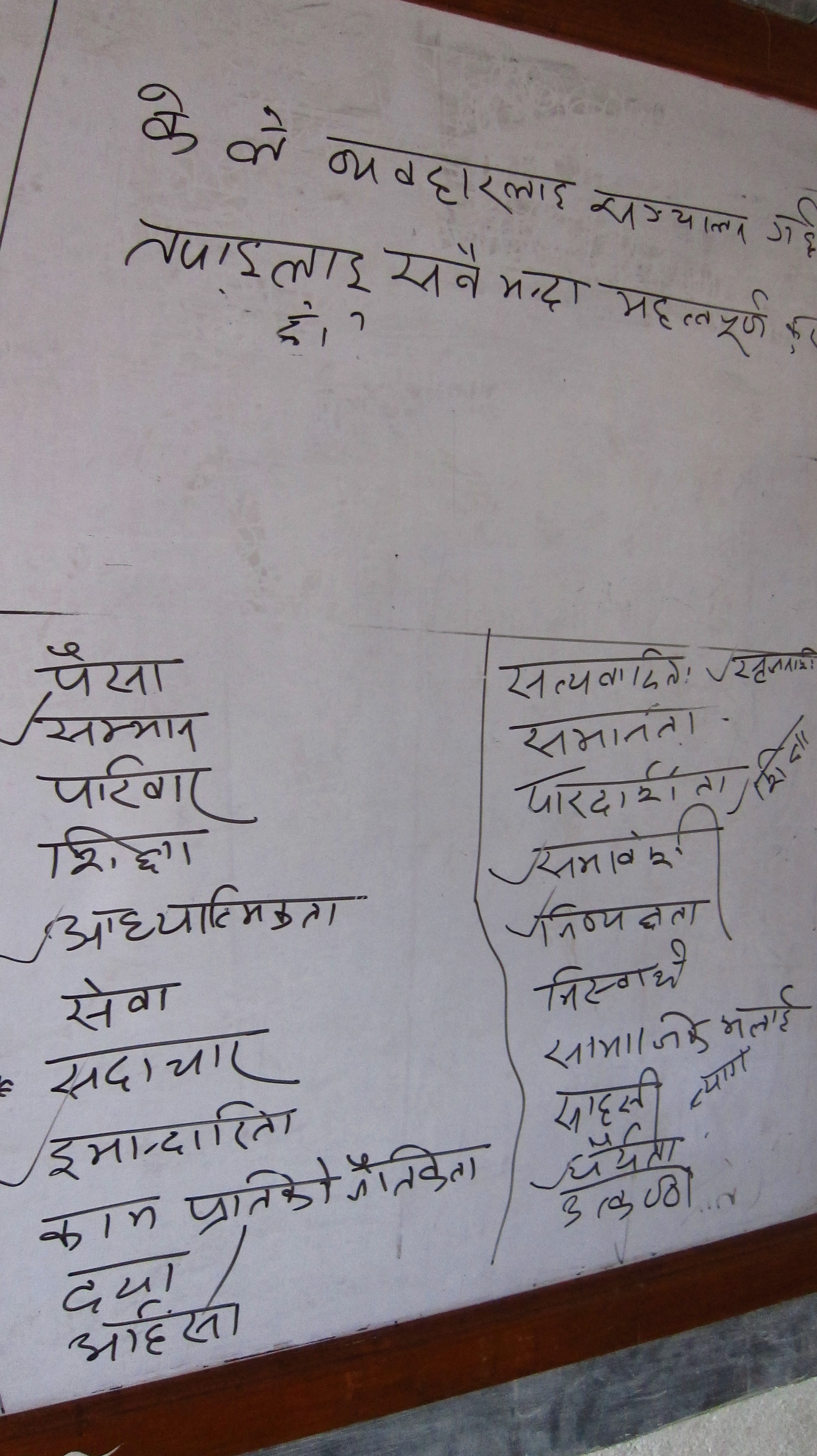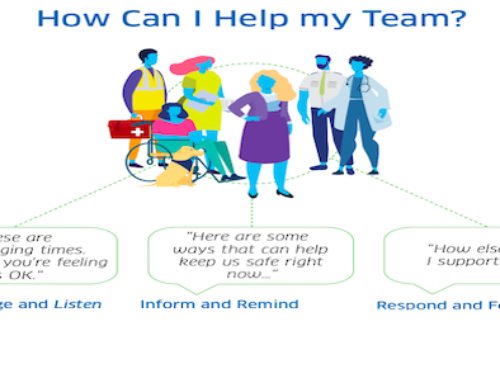Last week, Mr. Krishna Bahadur K.C., the Chairman of the School Management Committee, of Shree Shanti Niketan Primary School was looking for ways to mobilize his community towards common goals.
He was looking for a common denominator to bind the stakeholders that were impacted by future change initiatives.
Key Question
So I asked “What’s important to them, that is also important to you?” A long list ensued, which of course could be endless. Core values is one indicator of what’s important to you in your life.
We engaged in an exercise to define the core values for the group which could be repeated for their respective School Management Committees and community stakeholders. Core Values for the purpose of this exercise was defined as what you held as most important, what drives your behaviour, and what causes a strong emotional reaction when violated.
The top 5 values that the group agreed on were:
- Education
- Impartiality
- Patience
- Honesty
- Respect
Now What! – How do you put these values to use?
We started with the value RESPECT, and each person was asked to reflect on this value and come up with three ways they personally would demonstrate it. Examples included:
- Watch my own actions (reflection)
- Welcome others using Namaskar (the formal version of Namaste)
- Show up on time
- Treat others as you want to be treated
This exercise helps to create new acceptable norms for the group. When those “norms”, meaning behaviours, are not in alignment with the agreed to list, this gives them a basis for holding each accountable. This basis is somewhat self monitoring and doesn’t require rules, policies, procedures, manuals and other instruments of control. You cannot create a rule for every possible scenario or behaviour that you wish to direct or control but you can provide some overall guidelines and that’s what values are a compass to guide decisions, actions, attitudes, and overall behaviour.








Leave A Comment